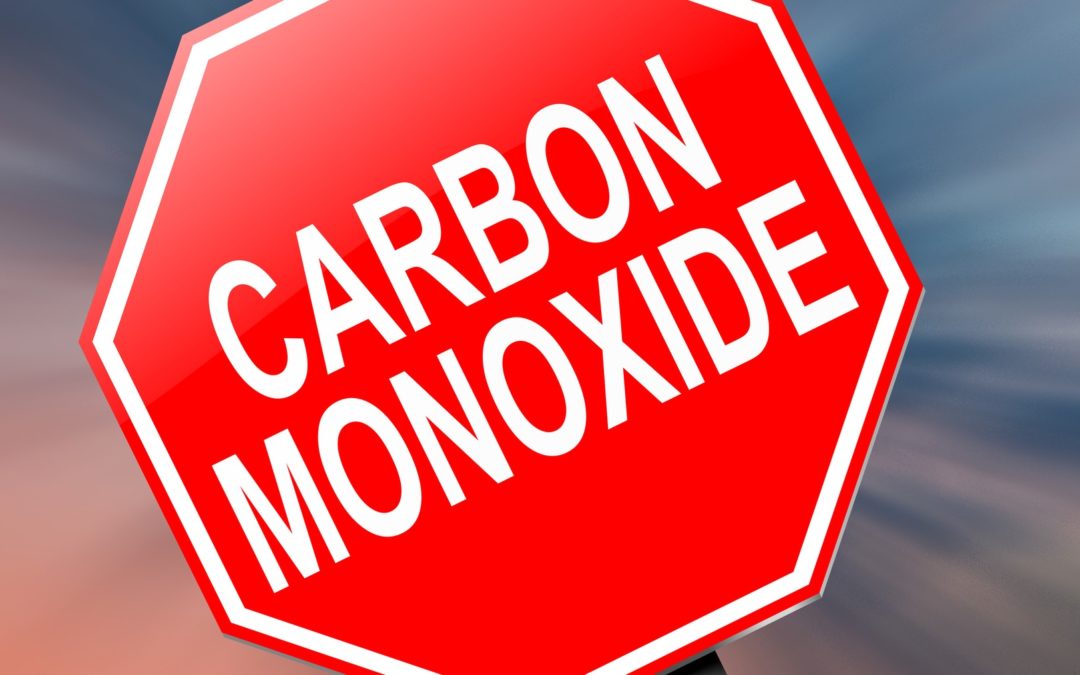Although our homes should be the safest place for us to be, there are some common household concerns every homeowner should know about just in case. One example typically encountered when buying a home is the potential presence of radon in enclosed spaces, a naturally radioactive element that can accumulate over time. Radon issues are rare, though, and they aren’t the only concern — much more serious is the risk posed by carbon monoxide, which causes hundreds of deaths in the US every year. That leads many concerned homeowners to wonder if they’re safe from threat. Specifically, you might wonder: does an air conditioner give off carbon monoxide?
There Is No Such Thing As AC Carbon Monoxide
In a word, no — it is physically impossible for an air conditioner to emit carbon monoxide because there are no processes in the equipment capable of producing this compound. Carbon monoxide is a byproduct of combustion processes, meaning fuel must burn for CO to enter the atmosphere of your home. Because of the way the refrigeration cycles work, there is no need to burn any fuel. The system uses only electricity to compress and circulate refrigerant to cool your home.
What Is Carbon Monoxide? Why Is It So Dangerous?
To understand why so many people ask questions such as “does an air conditioner give off carbon monoxide?” with genuine concern, it’s helpful to look at the real threat posed by this gaseous compound. Carbon monoxide is a simple molecule consisting of only a single carbon atom and a single oxygen atom. As a gas, it is completely odorless, totally colorless, and has no taste, either — meaning a room could quickly fill with carbon monoxide, and you would have no way of knowing until CO poisoning symptoms began to manifest.
If you breathe in too much CO, the chemical nature of the molecule begins to take over the natural chemistry of the body. Red blood cells passing by the lungs to collect fresh oxygen instead binds to the carbon monoxide molecules, leading to a severe lack of oxygen to critical body tissues. Breathing in too much CO for too long can result in serious brain damage or even death — so it makes sense for homeowners to have real concerns. Worrying about your air conditioner, however, is not a good use of your time.
When Do I Need to Worry About Carbon Monoxide?
The most common causes of CO leaks in modern residential homes relate to gas-fired appliances, particularly home heating furnaces. If you use any traditional heating method as an oil or gas-powered furnace, you will need to take precautions against CO poisoning. Routine, regular maintenance is one of the simplest ways to protect yourself.
A licensed professional can quickly identify common CO hazards, such as cracked heat exchangers, and repair them before it becomes a serious issue. Scheduling such a service visit before the heating season begins is an easy way to achieve peace of mind. Instead of wondering, “does an air conditioner give off carbon monoxide?“ the question on your mind should be, “when was the last time I maintained my heating hardware?”
If you have other gas appliances in the home, such as a gas-powered clothes dryer, a gas cooking range, or a similar water heater, you should also take steps to protect yourself from CO. Any gas appliance can potentially be a source of CO because of damage or wear and tear. If this threat is colorless and odorless, though, how are you supposed to protect yourself?
Safeguarding Your Home Against CO Leaks
First and foremost, buy a carbon monoxide detector. These small electronic devices, usually battery-powered, will sound a loud and shrill alarm if it detects a rising and dangerous level of CO in the ambient air. You can place CO detectors around the house, such as in your bedroom or even near the furnace room. If a problem does develop in between maintenance periods, you will receive an emergency alert in time to evacuate the home and call 911 for help.
Ensure that your gas appliances, especially the furnace, have proper ventilation to carry away any residual CO the units produce. Combine these efforts with regular maintenance, and you can enjoy a comfortable home without unnecessary worries.
Does an Air Conditioner Give Off Carbon Monoxide? No — But Be Careful
Taking precautions is essential, and due diligence can prevent tens of thousands of CO injuries in the US every year. Always connect with a licensed and insured heating and cooling contractor to examine your equipment for faults when in doubt. While the answer is “no” when you wonder, “does an air conditioner give off carbon monoxide?” that doesn’t mean you should neglect this important aspect of home safety. As a final word of advice, don’t forget to keep fresh batteries in your CO detectors. By being aware and staying smart about home HVAC, you can protect yourself from this invisible threat.

